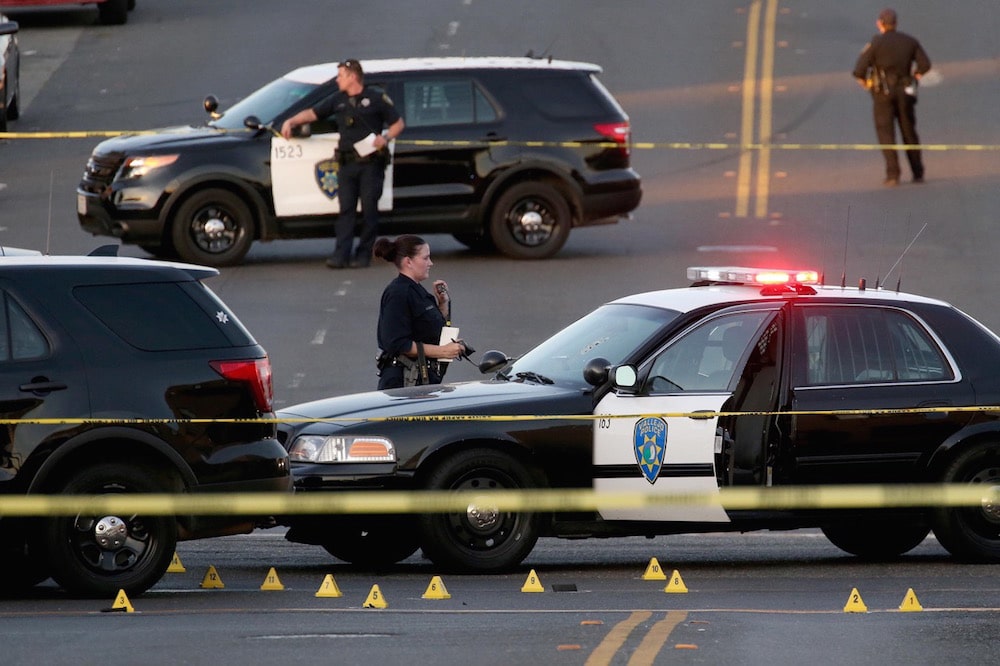In December, Solano Superior Court Judge Bradley Nelson upheld the gift of surveillance accountability that the California State legislature had provided state residents when they passed 2015's Senate Bill 741 (Cal. Govt. Code § 53166).
This statement was originally published on eff.org on 5 January 2021.
Just as the 2020 holiday season was beginning in earnest, Solano Superior Court Judge Bradley Nelson upheld the gift of surveillance accountability that the California State legislature had provided state residents when they passed 2015’s Senate Bill 741 (Cal. Govt. Code § 53166). Judge Bradley’s order brought positive closure to a battle that began last March when Electronic Frontier Alliance member Oakland Privacy notified the Vallejo City Council, and Mayor, that their police department’s proposal to acquire a Cell Site Simulator (CSS) violated California state law.
Introduced by then state-senator Jerry Hill, SB 741 requires an open and transparent process before a local government agency in California may acquire CSS technology. EFF explained this in our own letter to the Vallejo Mayor and City Council days after the illegal purchase had been approved. Specifically, the law requires an agency to write, and publish online for public review, a policy that ensures “the collection, use, maintenance, sharing, and dissemination of information gathered through the use of cellular communications interception technology complies with all applicable law and is consistent with respect for an individual’s privacy and civil liberties.”
Despite notice from Oakland Privacy that the proposal violated SB 741, the Vallejo City Council on March 24, 2020, authorized their police department to purchase CSS technology from KeyW Corporation. Meanwhile, the City and the nation were adapting to shelter in place protocols intended to suppress the spread of COVID-19, which limited public participation in Vallejo’s CSS proposal.
In his ruling, Solano County Superior Court Judge Bradley Nelson reasoned:
“Respondent had a duty to obey [SB 741] by passing a resolution or ordinance specifically approving a particular policy governing the use of the [CSS] device it purchased. Respondent breached that duty by simply delegating creation of that privacy policy to its police department without an opportunity for public comment on the policy before it was adopted. Because any such policy’s personal purpose is to safeguard, within acceptable limitations, the privacy and civil liberties of the members of the public whose cellular communications are intercepted, public comment on any proposed policy before it is adopted also has a constitutional dimension.”
In a statement released following the judge’s ruling, Oakland Privacy’s research director Mike Katz-Lacabe explained the group’s motivation for bringing the lawsuit: “to protect the rights of residents to learn about the surveillance equipment used by their local police and to make sure their elected officials provide meaningful oversight over equipment use.” He continued: “Senator Hill’s 2015 legislation had those goals, and citizens’ groups like ours are taking the next step to make sure that municipalities comply with state law…” Oakland Privacy and two Vallejo residents (Solange Echeverria, a journalist, and Dan Rubins, CEO of Legal Robot) filed the suit on May 21, 2020, requesting the judicial mandate for a public process per state law.
The City of Vallejo initially contested the lawsuit, but after a tentative ruling at the end of September in favor of Oakland Privacy, the City brought the policy back for a public hearing on October 27. On November 17, the policy returned for a second public hearing to address objections to the policy from Oakland Privacy, the ACLU of Northern California, and EFF. Among the changes were prohibitions against surveilling First Amendment-related activities and sharing data with federal immigration authorities, enhanced public logs, and Council oversight of software or hardware upgrades.
This is a significant victory not just for Oakland Privacy and the people of Vallejo. The power to decide whether these tools are acquired and, if so, how they are utilized should not stand unilaterally with agency executives. States, counties, cities, and transit agencies from San Francisco to Cambridge have adopted laws to ensure surveillance technology can’t be acquired or used before a policy is put in writing and approved by an elected body – after they’ve heard from the affected public. We applaud Oakland Privacy for taking a stand against law enforcement circumventing democratic control over surveillance technologies used in our communities.



